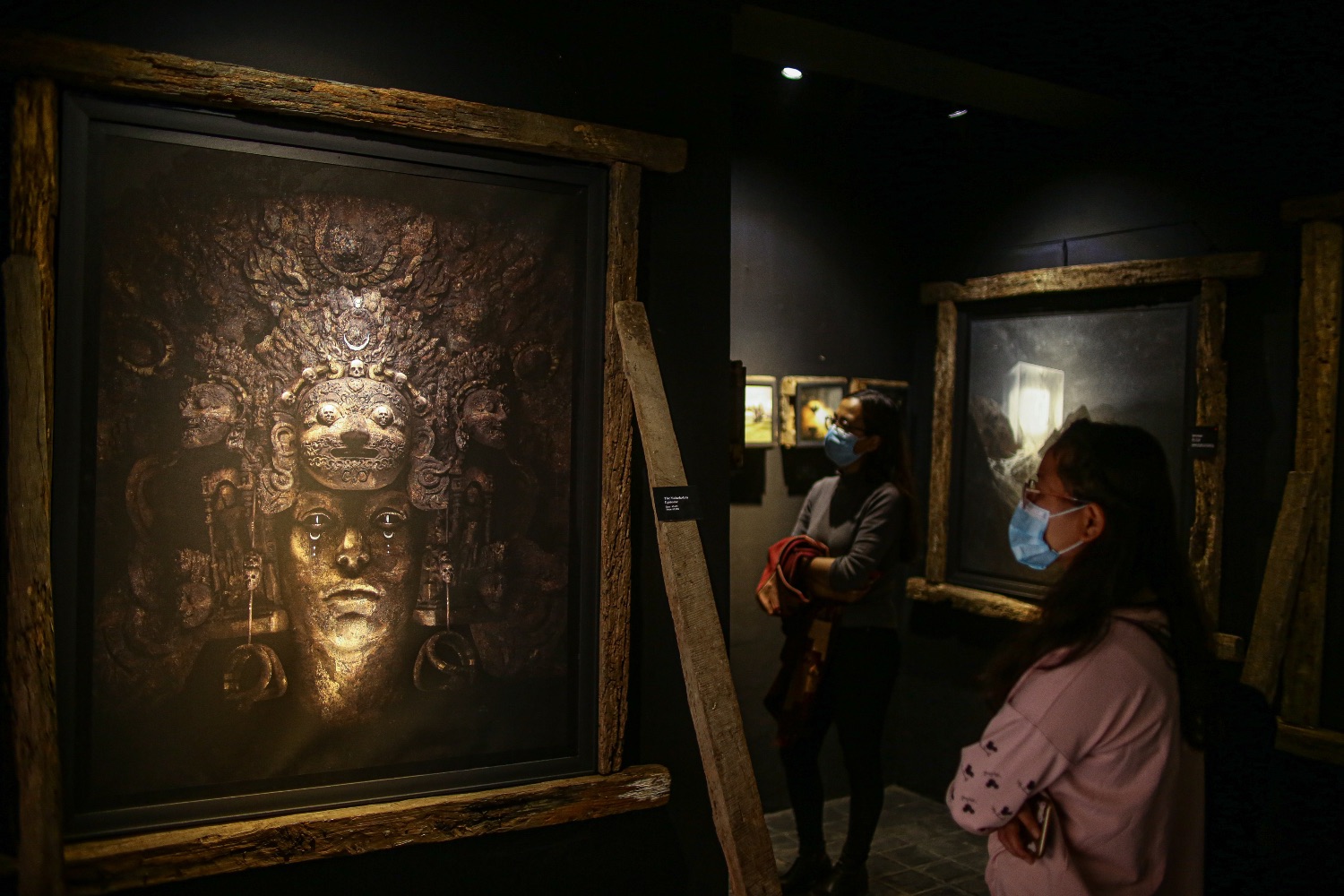Ashim Shakya’s digital hyper-realism

The black walls, dark cave-like interior of the Van Gogh Room at Dhokaima Café deepens the apocalyptic mindscape displayed in first physical exhibition of digital art by Ashim Shakya.
The manipulated images blend photographs, graft images, to communicate heritage loss, environmental degradation, climate change, ruinous urbanisation – all with gut-wrenching imagery.
A colossal coal-powered sewing machine stitches soul-less suburbia into a bucolic countryside, pressure cookers let off steam from Kathmandu Valley’s red hot furnace, a teacher conducts class inside a rice cooker, a gigantic ice cube melts on a mountain top sending water cascading down the side.
Shakya’s surreal digital images have a nightmarish quality, as if they are products of fearful dreams. But no, they are everyday reality for everybody.


Over a dozen of Shakya’s artwork created since 2012 are on display at the gallery till 24 March, part of Tulikaa Kala’s solo exhibition series, Kholo 2.0 that is showcasing work by 28 classic and contemporary Nepali artists till August.
“I think a lot, and I am completely immersed in the subject I am trying to convey,” Shakya says, pointing at the painting Solitude that won the CGTrader Award last year.
Shakya only makes 20 prints of each digital work, and has sold four these to buyers in Germany, Singapore and Nepal.
The theme here is obviously climate change, but Shakya does not want to be obvious. Solitude can mean many things to many people, it transcends the planet’s current anthropogenic crisis forces us to think of the nature of nature, impermanence and the riddle of existence. Kholo 2.0 Curator Ujen Norbu Gurung bought termite ridden logs being sold for firewood to frame Shakya’s art in the gallery space, and propped them up like post-quake Kathmadu streets.
Shakya takes months to painstakingly work pixel-by-pixel on some artwork. “If I put my heart and soul into something, I will finish it regardless of anything happening around me,” he says, pushing back frizzy locks, his beard almost eclipsing a smile.

As an introvert child, Shakya was drawn to physics and spent most of his days locked inside his room, fiddling with electronic gadgets. But this just made him more self-sufficient, and art became an outlet to let his thoughts out.
After brief animation courses in his late teens, Shakya learnt to paint with acrylic on canvas and graduated to digital art with his work in video games.
“Digital art gave me the freedom to express my creativity and emotion and taught myself the techniques with experimentation,” he says, pointing out two of his favourite works, The Mahakal’s Epitome and Mellow Dwellings II, which is his best-seller with eight copies sold.
“The combination of music, the crowd and infrastructure were lucid for me when I was working. I could feel that I was a character in the piece and enjoyed the emotions that played inside my head,” he says.
The artist is nocturnal. Sometimes inspiration comes in dreams, and he wakes up to visualise his idea. Shakya burst into the art scene after the earthquake and blockade for his surrealistic digital images: animated temples floating weightlessly above a valley shrouded in smoke and dust, fearsome manifestations of anthropomorphic gods and goddesses, and old Newa houses transformed into guitars and sarangi.
Born and brought up in Kathmandu, the city is Shakya’s muse. He draws inspiration from its rich heritage and its dystopian urbanisation. The themes are dark, the subject matter heavy, and the approach psychedelic. Yet Shakya treads lightly, leaving the images dangling in our mind’s eye to make what we want of it.
He says, “The universe is ever-evolving. We humans are just specks. I don’t take the human species too seriously. Nature will survive, the Earth will go on without us.”
Shakya’s exhibition at Dhokaima Café’s Van Gogh room will run until 24 March. Kholo 2.0 – A Cycle of Life is ongoing at Dhokaima Cafe until 27 August.




